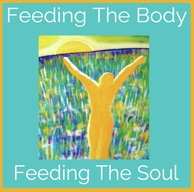 Top Tips for Healthy Aging We have more aging adults alive today than at any other time in history. This is no small feat. With advances in medicine, better access to resources, and improvement in our general quality of life, living well into our 80s and beyond is a realistic expectation to hold. That being said, there is a general understanding that getting older means developing health complications. Osteoporosis, arthritis, heart disease, diabetes, cognitive decline, hearing loss and decreased stamina are often associated with aging. The question that remains is, is this physical decline inevitable? The answer is not necessarily. When it comes to healthy aging, lifestyle plays a role and although we may not be able to change genetics or random chance, a preventive lifestyle can make a big difference. 1 - Lower Your Stress High levels of stress over prolonged periods of time is dangerous at any age, but can be more difficult to recover from as we get older. When we experience stress, the hormone cortisol is released into our system. For instances of short-term stress, this is a good thing, cortisol acts as an internal alarm system and is crucial for keeping us safe. Once the stressful situation has passed, our cortisol level should drop in accordance with our heart rate. How Stress Makes You Feel OlderLong-term stress often keeps our internal alarm system activated. This wreaks havoc on the body affecting our sleep and recovery time, our energy levels, our mental and emotional acuity. Prolonged stress can lead to:
Lifestyle Changes That HelpThe preventative measures listed below can help minimize your cortisol levels and regain your health:
2 - Manage Your Insulin Insulin may not be something you discuss with your family doctor if you don’t have a diabetes diagnosis, but research tells us that maintaining stable insulin levels is a key to longevity. Meanwhile, insulin resistance due to chronically high insulin has been shown to predict and accelerate the development of age-related diseases including hypertension, coronary heart disease, dementia, stroke, cancer, and type 2 diabetes. Ditch Refined Carbohydrates When we eat a steady diet of refined carbohydrates and quickly absorbed sugars, our cells slowly become more insulin resistant, requiring more insulin to maintain healthy blood sugar levels. The higher our insulin levels stay, the more resistant our cells become, eventually leading to what is often called metabolic syndrome: A collection of symptoms including fatigue, excess fat around the midsection, increased blood pressure, elevated fasting blood sugar and increased inflammation throughout the body. Insulin Testing Insulin levels go up long before they develop into issues such as hypoglycemia and prediabetes, and early detection can help change the course of what happens next. Often, we are unaware that our insulin levels have increased and are nearing dangerous levels. Lab testing to determine your levels is important in understanding where you stand now as well as having a measurement to assess your progress. Lifestyle Changes The actions needed to prevent and reduce insulin resistance in the early stages are fairly simple: reduce your consumption of refined carbohydrates, eat protein at every meal, and stay active. An Integrative/functional/Nutritionist can help you keep track of your insulin levels and recommend the right supplements for your specific needs. 3 – Keep Your Hormones Balanced Hormones are messengers that affect everything in our bodies, from our growth and development to reproduction, tissue repair, metabolism, immunity, and inflammation. Keeping our hormones functioning optimally is imperative to staying healthy. As we age however, our hormone secretion becomes less efficient, which leads to imbalances and changes in the effectiveness of our internal systems. Hormones and Aging This imbalance can lead to a wide variety of health issues such as:
Hormone Testing If you are concerned about your hormone levels, your doctor can run tests to check your levels of testosterone, progesterone, estrogen, cortisol and thyroid hormones and determine your current hormonal status as well as a plan to get your hormones balanced. A Hormone-Friendly Lifestyle Balancing your hormones through diet and lifestyle habits can make a big difference in your overall health and the aging process. Our suggestions include:
4 - Keep Inflammation at Bay Inflammation is the body’s way of protecting itself. Physical injuries trigger the release of proteins, antibodies and increased blood flow to the area to repair the damage. What many people are not aware of is that long-term exposure to irritants and toxins, food sensitivities, autoimmune disorders and even stress can cause an inflammatory response too. When this response continues for more than a few days, it’s considered chronic. How Chronic Inflammation Ages You Chronic inflammation is a major component of accelerated aging and a risk factor for developing atherosclerosis, hypertension, diabetes, strokes, heart attacks, fibromyalgia, arthritis, sinus infections, autoimmune conditions and cancer. Testing for Inflammation At Feeding The Body FeedingThe Soul we use the ALCAT/Cell Science Test to determine what foods and chemicals create inflammation for you. Food sensitivity testing can sometimes help get to the root of the problem. Living an Anti-Inflammatory LifestylePreventive measures for chronic systemic inflammation include:
5 - Keep Moving And finally, regular physical activity is crucial to aging well. As we get older we start to lose bone density and muscle mass which impacts not only our physical strength, but more importantly our stability, bone strength and immune system. Keeping active and flexible throughout all stages of life allows us to stay healthy and remain independent in our later years. Choose Activities that Suit You Regular activity doesn’t have to mean team sports (although there is no harm in that.) Find a form of exercise that suits your lifestyle and level of fitness, and stick to it: Taking a walk, a Yoga or Pilates practice, swimming or cycling are all great lifelong habits. Make sure to include an element of weight resistance which helps strengthen your bones and joints as well as improving heart health. Getting Your Body Some Help Although aging isn’t a choice, aging well is. There is a lot you can do to optimise your version of the aging process by identifying problem areas and adopting a preventive lifestyle. It’s never too late to make a difference. Working with a Nutrition Practitioner such as Nancy is a great place to start. Together we can run labs to identify and target your specific imbalances and begin your path to better long term health. Call or email us at 904-687-0720 or [email protected]. Our online booking link is: https://booknow.appointment-plus.com/ydrextvy/ to book an appointment. Be well, Nancy Cohen RDN LDN Nancy Cohen,RDN, LDN Licensed Registered Dietitian Nutritionist Nutrition & Wellness Consultant IET Master Teacher, Universal Rays Practitioner and Teacher Masters Way Instructor Path of The One Heart Instructor Usui Reiki Master, Intuitive- Medium Adults, Children, Animals 904-687-0720 www.FeedingTheBodyFeedingTheSoul.com https://booknow.appointment-plus.com/ydrextvy/ https://www.myyl.com/feedingthebodyfeedingthesoul https://www.facebook.com/feedingthebodyfeedingthesoulriverside/ https://feedingthebodyfeedingthesoul.ehealthpro.com/
0 Comments
Leave a Reply. |
Nancy Cohen
|

Feeding the Body
Feeding the Soul Nancy Cohen Registered Dietitian/Nutritionist, IET and REIKI Master Universal Rays Healer/Teacher Ordained Minister P: 904-687-0720
P: 215-259-3853 |
17 Reviews 4.5 out of 5
★★★★★
|
Website by Feeding The Body Feeding The Soul llc | Privacy Policy | Terms of Use Feeding the Body Feeding the Soul, Newtown PA 18940
 RSS Feed
RSS Feed
